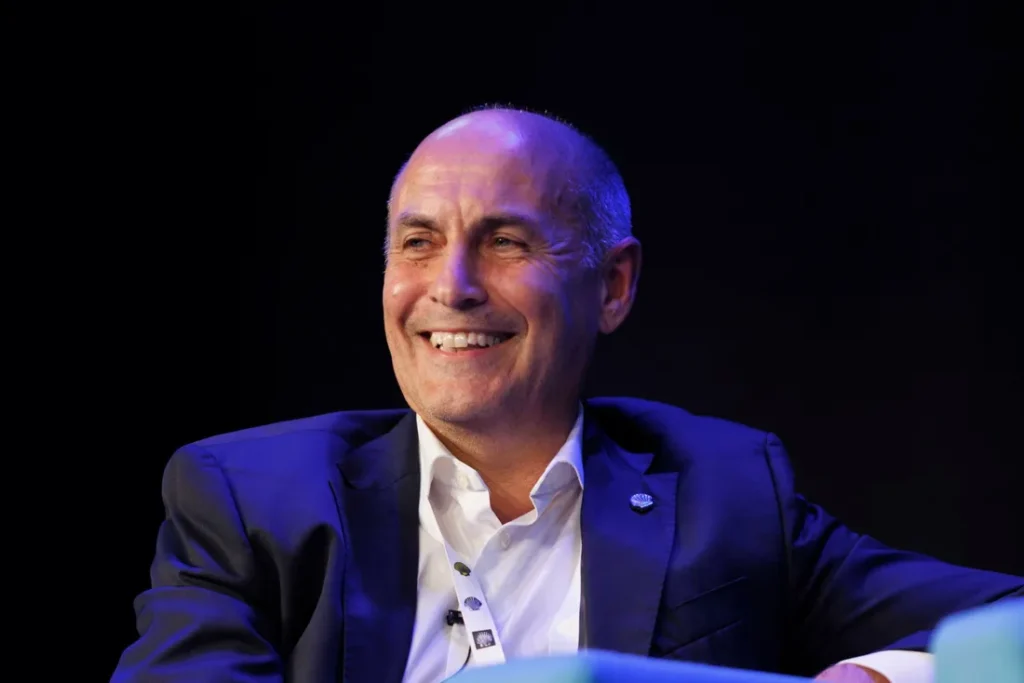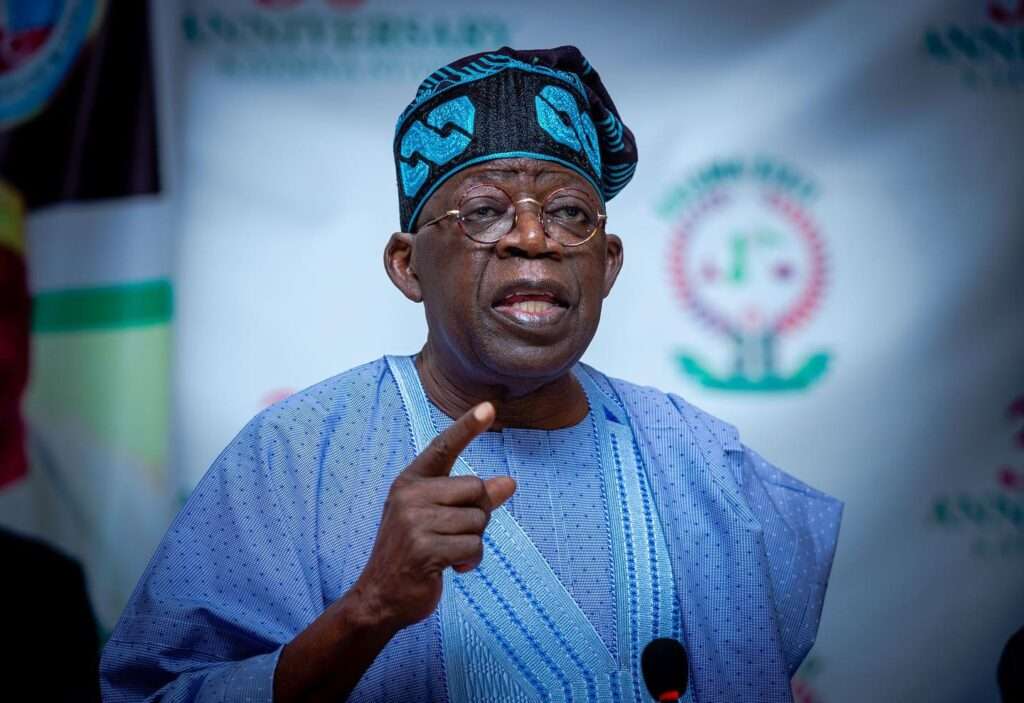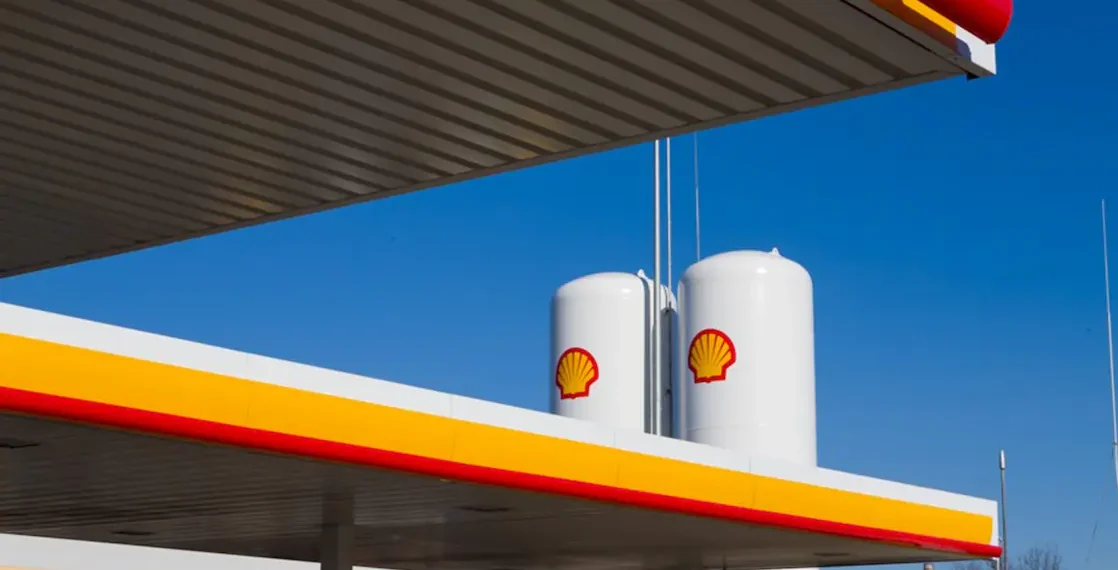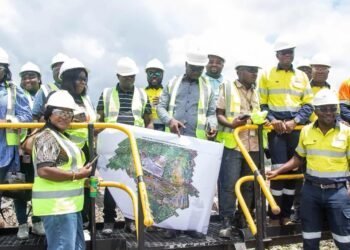Energy giant Shell (SHEL.L) has approved the development of a major offshore gas project in Nigeria in partnership with Sunlink Energies and Resources Limited, marking another bold investment in Africa’s largest oil and gas producer.
The project, designed to strengthen Nigeria’s liquefied natural gas (LNG) exports, will deliver 350 million standard cubic feet of gas per day equivalent to about 60,000 barrels of oil equivalent to Nigeria LNG (NLNG), where Shell holds a 25.6% stake.
Announcing the decision on Tuesday, Peter Costello, Shell’s Upstream President, said the development underscores the company’s enduring commitment to Nigeria’s energy future.
“Following recent investment decisions related to the Bonga deep-water development, today’s announcement demonstrates our continued commitment to Nigeria’s energy sector, with a focus on Deepwater and Integrated Gas.
“This upstream project will help Shell grow our leading Integrated Gas portfolio while supporting Nigeria’s plans to become a more significant player in the global LNG market.”
Peter Costello, Shell’s Upstream President
Production from the new field is expected to begin before the end of this decade, with the gas serving as feedstock for NLNG’s Bonny Island terminal.
The project forms part of Shell’s strategy to grow its global LNG portfolio by 4–5% annually through 2030, while supporting Nigeria’s ambitions to expand its LNG exports and attract fresh foreign investment.
Strategic Boost to Nigeria’s LNG Ambitions

The newly approved project, known as the HI field development, was first discovered in 1985 and lies about 50 kilometers off the Nigerian coast in 100 meters of water.
According to Shell, the field holds an estimated 285 million barrels of oil equivalent (mmboe) in recoverable resources a P50 estimate, meaning there is an equal probability of the final figure being higher or lower.
The venture will be jointly developed under a partnership between Sunlink Energies and Resources Limited, which holds a 60% interest, and Shell Nigeria Exploration and Production Company (SNEPCo), which holds 40%. The project will be managed and reported through Shell’s Upstream segment.
Once operational, the HI field will consist of a wellhead platform with four production wells connected to a subsea pipeline system transporting multiphase gas to onshore facilities at Bonny.
There, the gas will be processed before being delivered to NLNG for liquefaction and export, while condensate will be sent to the Bonny Oil and Gas Export Terminal.
Shell said the project aligns with its global capital investment strategy outlined at its 2025 Capital Markets Day, which includes bringing onstream new upstream and integrated gas projects capable of producing over 1 million barrels of oil equivalent per day between 2025 and 2030.
“The increase in feedstock to NLNG, via the Train 7 expansion project, aligns with our long-term plan to grow global LNG volumes by an average of 4–5% per year until 2030.
“This will bolster NLNG’s contribution to Nigeria’s economic development goals through job creation and industrial growth.”
Shell
Nigeria’s Energy Reforms Winning Global Confidence

In a swift reaction to Shell’s announcement, the Special Adviser to President Bola Ahmed Tinubu on Energy, Mrs. Olu Verheijen, praised the decision as a “transformational step” that reaffirms global confidence in Nigeria’s reformed energy landscape.
“This decision will unlock Nigeria’s vast gas potential to drive industrialization, create jobs, and power a cleaner, more prosperous future.”
Mrs. Olu Verheijen, Special Adviser to President Bola Ahmed Tinubu on Energy
She highlighted that the HI gas project marks the third major final investment decision (FID) in the country’s oil and gas sector within the past 18 months, following the Ubeta gas project and the Bonga North deepwater development.
“Together, these projects represent over $8 billion in upstream investment commitments since President Tinubu took office in 2023.
“They are proof that targeted policy reforms, fiscal incentives, and streamlined regulatory processes are restoring investor confidence and repositioning Nigeria as a competitive global investment destination.”
Mrs. Olu Verheijen, Special Adviser to President Bola Ahmed Tinubu on Energy

Shell emphasized that the project not only strengthens Nigeria’s gas sector but also supports global energy transition goals.
Liquefied natural gas (LNG), the company noted, plays a critical role in providing a cleaner-burning alternative to coal and oil. “LNG produces less greenhouse gas emissions than coal when used for electricity generation, and fewer emissions than petrol or diesel when used as transport fuel,” the company stated.
The move comes less than a year after Shell’s final investment decision on the Bonga North project in December 2024 and its subsequent increase in stake in the larger Bonga field.
These decisions reflect Shell’s strategy to remain a disciplined but committed investor in Nigeria’s energy sector, focusing on deepwater and integrated gas projects that support both profitability and sustainability.
READ ALSO: BoG’s $1.15bn FX Injection Sparks Clash with IMF and World Bank Over Cedi Stabilization





















